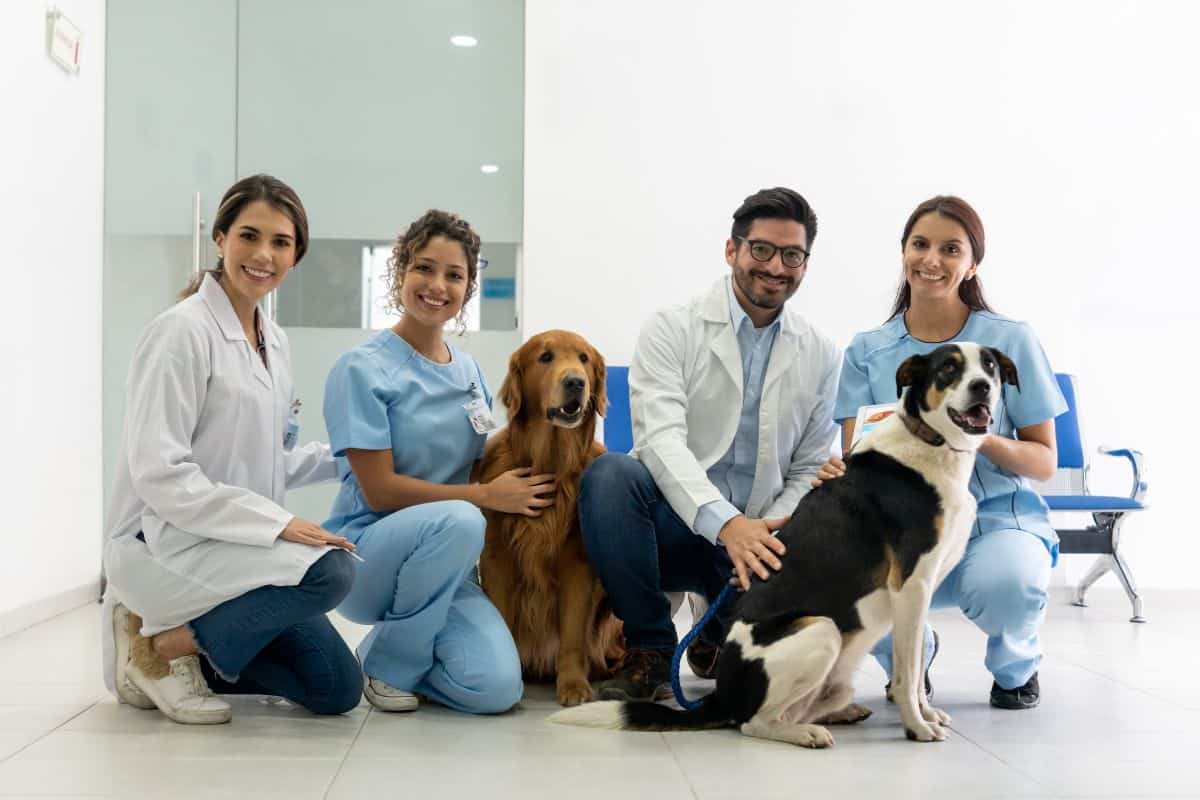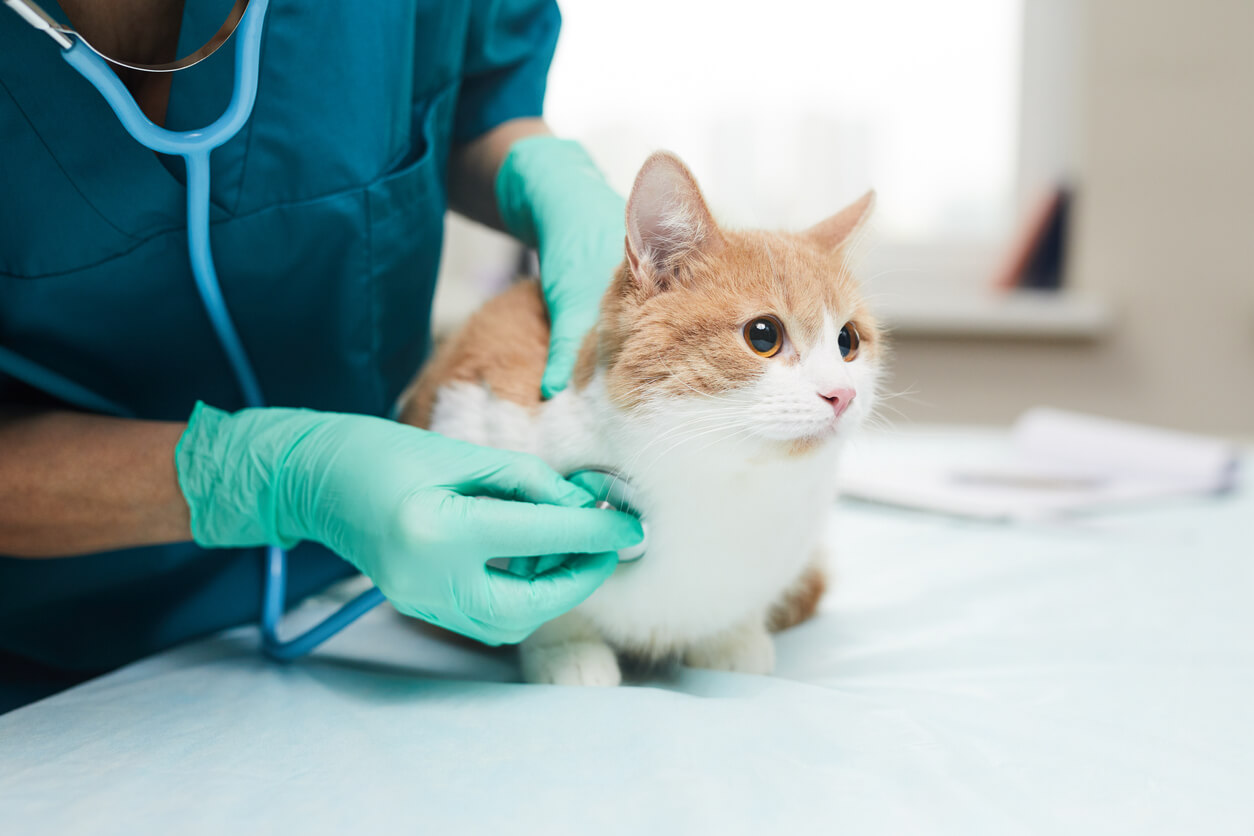Protect Your Pet's Future with Timely Pet Vaccinations from a Professional Vet
Wiki Article
Inoculation Guidelines From Your Trusted Veterinarian
Inoculation guidelines given by your trusted veterinarian play a critical function in securing your pet dog's health and well-being. In addition, dealing with typical misunderstandings surrounding injections can further boost family pet owners' confidence in these precautionary measures.
Relevance of Inoculations
Inoculations play an essential duty in securing animals against a variety of preventable diseases. By promoting the body immune system to acknowledge and battle details virus, vaccines significantly lower the incidence of transmittable diseases that can impact a pet's wellness and durability. Not just do vaccinations safeguard private animals, yet they additionally add to herd resistance, thus reducing the overall occurrence of diseases in the animal population.Timely inoculations aid to mitigate the spread of illness such as rabies, parvovirus, and distemper, which can have serious effects for both people and family pets. Inoculations are frequently a need for boarding facilities, grooming services, and pet parks, making them vital for those who wish to mingle their family pets.

Core Vaccines for Animals
While the certain inoculation demands of animals can vary based on private factors, core injections are universally recommended to secure versus one of the most typical and serious illness (Emergency Vet). Core injections are those considered essential for all animals, no matter their way of life or geographic location, as they safeguard versus very infectious and possibly fatal diseasesFor pet dogs, the core injections consist of those for canine distemper, parvovirus, adenovirus (hepatitis), and rabies. Adenovirus can result in liver disease, while rabies is a zoonotic disease that presents a risk to both pets and humans.
In cats, core vaccines encompass feline panleukopenia, feline calicivirus, feline herpesvirus (rhinotracheitis), and rabies. Feline panleukopenia is a very contagious viral condition that affects the immune system and intestinal tracts. Calicivirus and herpesvirus are major factors to top respiratory system infections in felines, while rabies remains a crucial issue for public wellness.
Seek advice from with your veterinarian to guarantee your pets get their core inoculations on timetable.
Non-Core Vaccines Explained
Non-core vaccinations are tailored to resolve details dangers related to a pet's exposure, lifestyle, and setting to specific conditions. Unlike core vaccines, which are generally advised for all pet dogs, non-core injections are taken into consideration based upon individual scenarios. These injections are especially essential for family pets that may run into distinct microorganisms due to their geographical place, travel habits, or activities.Examples of non-core vaccinations include check that those for Bordetella bronchiseptica, which is linked to kennel cough, and Lyme condition, triggered by ticks. Pets that regularly engage with various other pets, such as those in boarding facilities, dog parks, or grooming settings, might take advantage of Bordetella inoculation. If you live in a location where Lyme disease is widespread, vaccinating versus this condition can be a sensible selection for outdoor-loving pet dogs.
Other non-core vaccinations might consist of those for leptospirosis, canine flu, and feline leukemia, depending upon the details threat variables existing. It is necessary to have a detailed discussion with your veterinarian about your family pet's way of life and the possible need for these vaccines, ensuring a customized vaccination approach that best secures your fuzzy good friend.
Inoculation Set Up Introduction

As animals mature, it is essential to abide by the recommended booster vaccinations. Veterinarian Enterprise. For adult animals, core vaccines are commonly offered each to three years, depending upon the specific vaccine and regional laws. Non-core injections might be recommended based upon way of life variables and local illness prevalence, necessitating a tailored approach
Normal vet examinations are important for upgrading inoculation schedules. Your vet can supply guidance on one of the most proper booster shots for your pet, factoring in age, wellness status, and ecological risks. By staying aggressive and educated, family pet owners can guarantee their fuzzy buddies get efficient and prompt vaccinations, therefore safeguarding their wellness and well-being throughout their lives.
Common Myths Concerning Vaccinations
Mistaken beliefs about animal vaccinations can result in complication and unwillingness amongst animal owners pertaining to the immunization process. One common misconception is that injections are unneeded for indoor animals. While try this it holds true that indoor animals encounter lower dangers, they are not completely unsusceptible to conditions, as pathogens can be introduced via different ways, consisting of human clothes and various other animals.An additional misunderstanding is that injections can cause the conditions they intend to prevent. In fact, a lot of vaccinations include suspended or attenuated microorganisms, which can not trigger condition in healthy animals. Some pet dog proprietors also believe that their family pets should not be immunized if they are currently healthy; nonetheless, vaccinations are a positive measure that assists prevent the beginning of illness.
Furthermore, several pet owners fear that injections will result in long-term wellness difficulties. While negative effects can take place, they are short-term and normally mild. The benefits of inoculation-- shielding animals from potentially deadly diseases-- much exceed the threats. Comprehending these typical myths is essential for responsible family pet ownership and ensuring the health and Pet Health Checkup wellness of your fuzzy buddies. Always consult your vet for precise info tailored to your pet dog's certain needs.
Final Thought
In summary, adherence to vaccination standards is critical for making sure the health and long life of family pets. Core vaccines give vital protection versus major conditions, while non-core vaccines resolve details dangers based upon individual lifestyles. Developing a comprehensive inoculation routine, along with routine veterinary exams, helps with optimum health and wellness monitoring. Eliminating typical misconceptions surrounding inoculations better reinforces the significance of educated decision-making in pet treatment. Inevitably, a proactive method to inoculations is vital for preserving pet dog well-being.Not only do vaccinations safeguard private pets, however they additionally contribute to herd immunity, consequently lowering the overall prevalence of illness in the family pet populace.
Misconceptions about family pet inoculations can lead to complication and hesitation amongst pet dog proprietors regarding the immunization process. While it's true that indoor animals deal with lower dangers, they are not totally immune to illness, as microorganisms can be introduced with different means, consisting of human apparel and various other pet dogs.
Some pet dog owners also think that their animals should not be vaccinated if they are currently healthy and balanced; nevertheless, vaccinations are a positive procedure that aids protect against the onset of disease.
The benefits of inoculation-- securing animals from potentially life-threatening diseases-- much outweigh the threats.
Report this wiki page